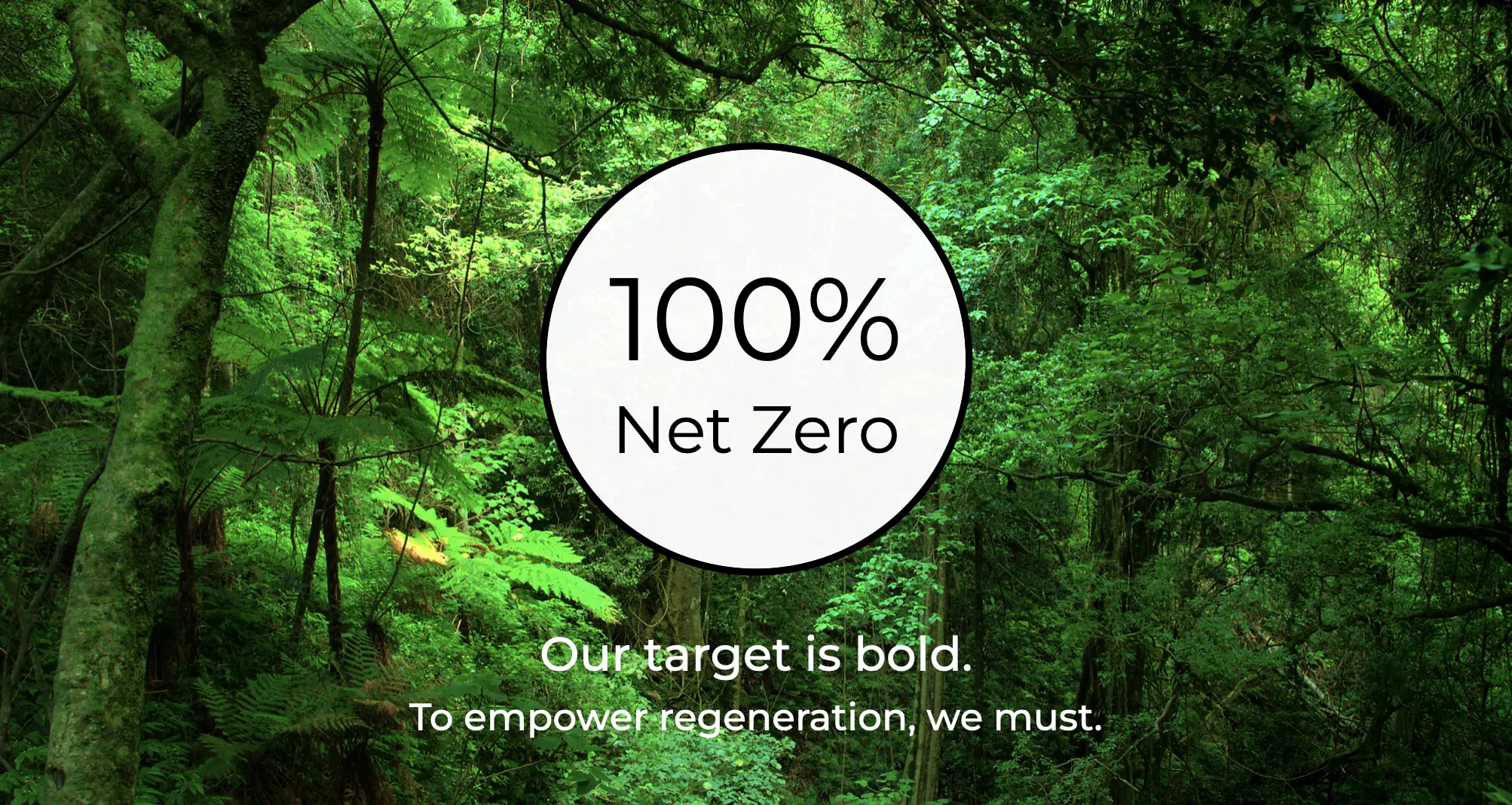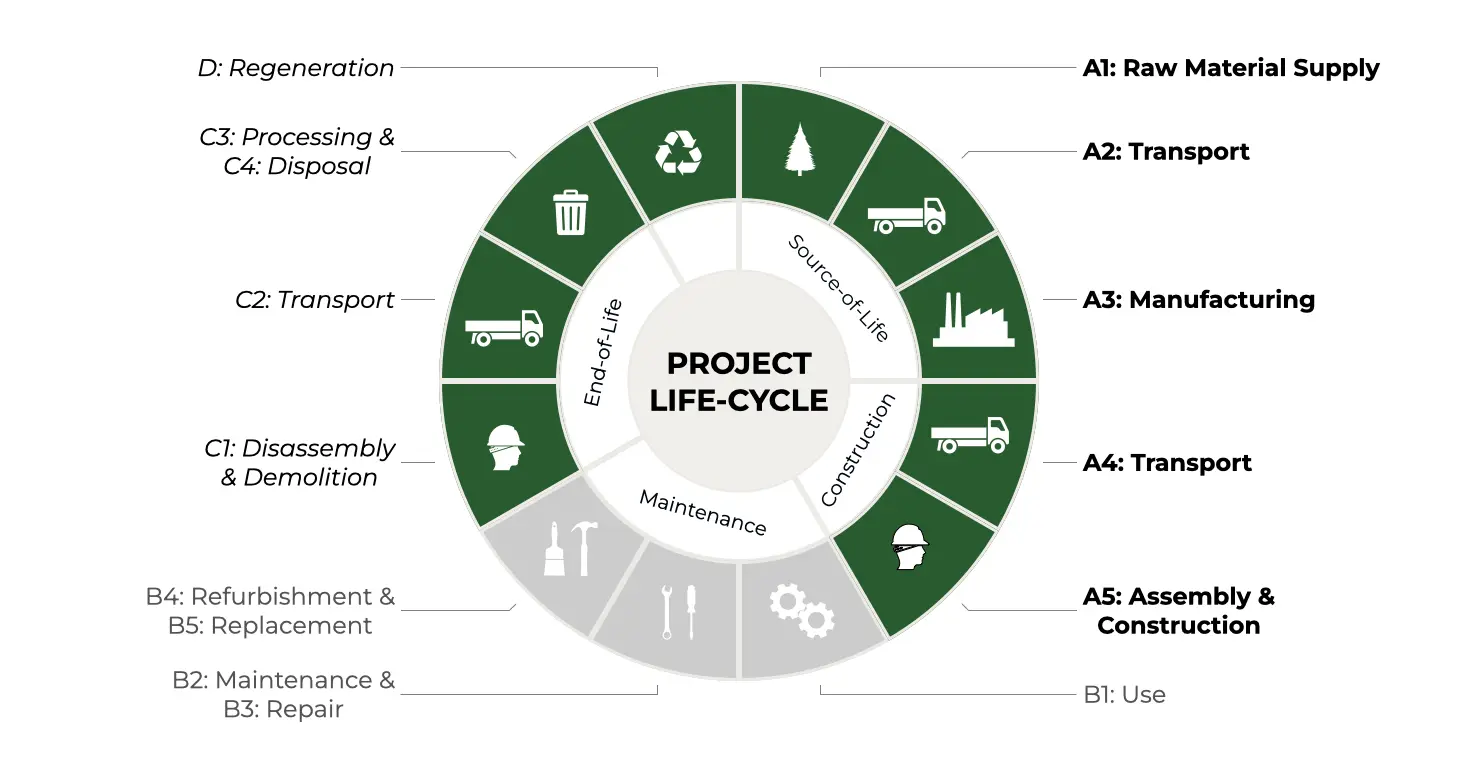RESET® Embodied Carbon
RESET Embodied Carbon is a standard and certification program that measures the total GHG emissions and removals associated with materials, products and assembly processes, throughout the life cycle of built environments, with the goal of identifying how to improve.
RESET Embodied Carbon is specific to the built environment and can be used to comply with corporate reporting requirements of the CSRD and the GHG Protocol. RESET is globally unique in providing an embodied carbon standard for interiors.
RESET expands upon EN 15978 and ISO 14040/44, and can be used for GRESB, LEVELs, LEED and BREAAM purposes.

Carbon Lifecycle
The RESET Embodied Carbon Standard requires the calculation of embodied carbon for the lifecycle stages identified in the Project Boundary.

RESET is first and foremost an accounting an auditing standard for environmental performance. Its primary purpose is to ensure that results are transparent, accurate, representative, comparable and replicable.
Similar to financial statements, RESET is not a pass / fail system. Rather, it is a system and standard for measuring and reporting performance. RESET results can then be used to describe levels of performance and improvement of a project and a portfolio.